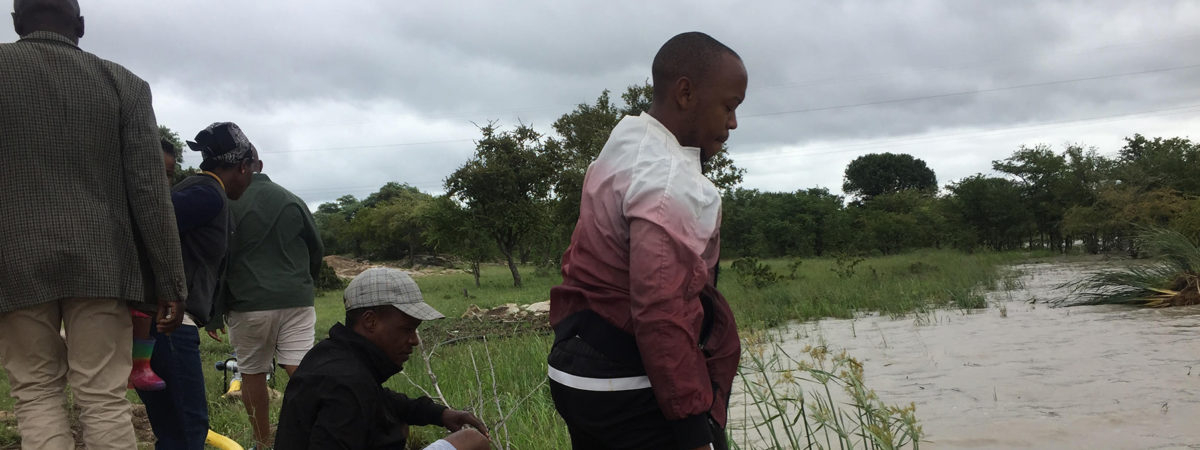
I have always proudly considered myself a small city girl until my life was radically changed when my husband moved our family to Francistown, Botswana. This move meant we would live closer to our parents who have close bonds to their home villages. In my case, I formed a bond with the village where my father-in-law was born, raised, and schooled—Matenge Village.
I am the founder and CEO of Dream Factory Foundation, where our mission is to end economic inequality of youth, particularly young women from low-income communities, through holistic education that enables them to transition successfully into adulthood and make full contributions to society.
Our work in Matenge began when our father asked us to make financial contributions to help the primary school buy a printer. Of course, being the head of an organization, I was intrigued to learn more about the school and see how else we could make a difference. As program implementers of Africa Code Week, we jumped at the opportunity to introduce the learners on the basics of coding; but since the school did not have a computer lab, we had to bring our own. The learners were so welcoming and eager to learn that I wanted to work on a more sustainable project that would not only introduce them to a whole new world but also could be integrated into the teaching experience. I wanted to choose a project that they could connect to their daily lives so that we could draw on their lived experiences in the classroom. I also wanted a project that could have a ripple effect on their entire community.
One thing I would really advise is to choose something that is at the core and the heart of the children you are working with, that they relate with, and that they can take to the next level. For me, that meant that I knew farming was an integral part of the learners’ lives. Like the day we were running a session and some of them were telling me that before they came to school they harvested watermelon, so immediately I knew that, wow, we’ve chosen the right project that we are working on. I can just imagine as the project grows the beautiful and amazing transformation that is going to happen, not just in this class but how we’re going to translate out into the world. So that would be my one piece of advice – to choose something that you are deeply passionate about and your learners are deeply passionate about and that once they’re done, they can really practically use it.
Lusanda Magwape
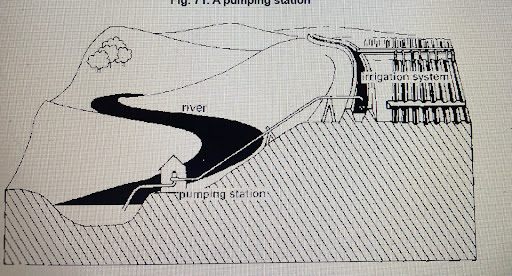
Design for the irrigation system.
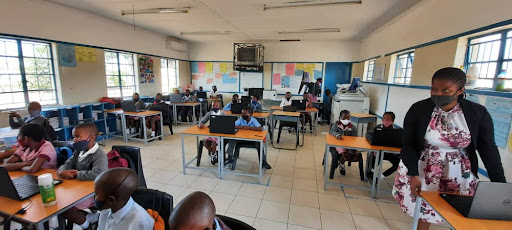
Engaging young learners in the classroom.
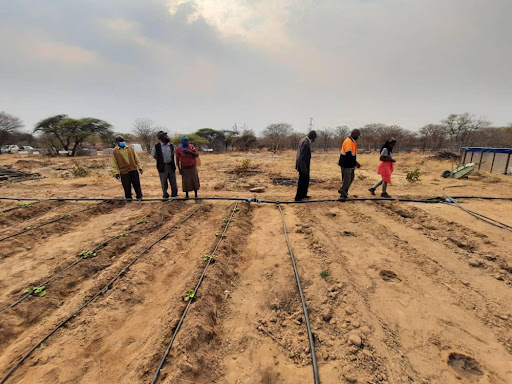
Walking the lines of the irrigation system.
I love this challenge because it has given me the opportunity to advocate for the importance of enabling rural-based communities to engage in such initiatives. Such challenges and opportunities are often concentrated in cities where learners already have a myriad of programs to choose and learn from. In a village like Matenge, this is a once-in-a-lifetime opportunity. My goal is to ensure that it is not.
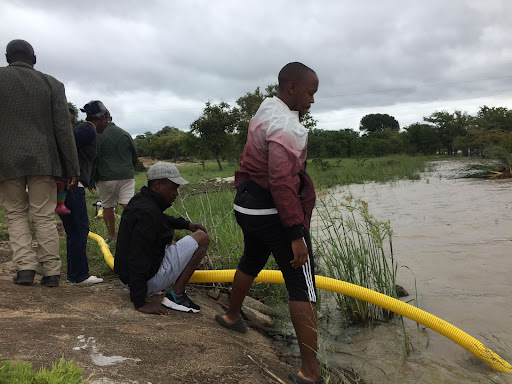
Checking the mainline of the irrigation system’s water source.